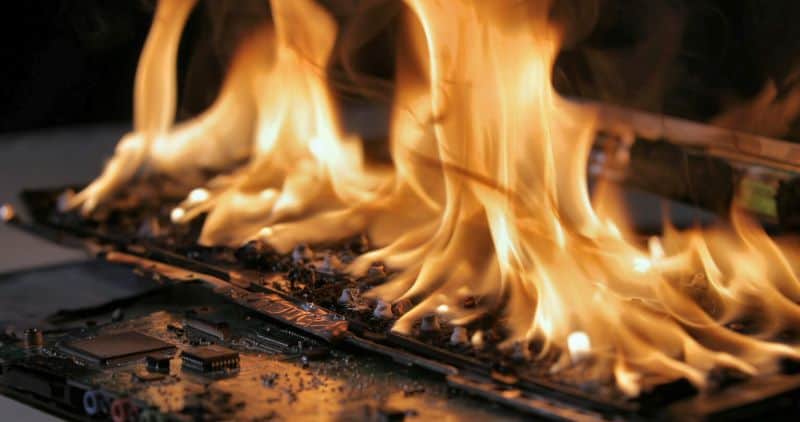On Christmas morning many of us unwrap new toys, gadgets, and devices… but some of them come with a hidden danger.
Lithium-ion batteries can start fires that spread quickly and are difficult to put out. They’re becoming more popular because they last longer than typical alkaline batteries, but they can overheat. Perrysburg Fire says the most likely time for those lithium-ion batteries to catch on fire is while they’re charging.
“You want to be present when the charging is happening,” said Aaron Harwell, Fire Marshal for the city of Perrysburg. “You don’t want to leave it unattended, go away on vacation with it plugged in.”
Be sure to ONLY use the charger that came with the battery. Just because the plug fits, doesn’t mean that it’s safe.
“If you get multiple devices, sometimes you may think that they all work together. But if you have different chargers for different devices and you use the wrong one, those things can overheat and cause a fire,” explained Harwell.
You should also avoid using extension cords when charging those batteries, and don’t let them charge overnight. The internal design of a lithium-ion battery is different from a standard one, so once the metals inside ignite… they’re very hard to extinguish.
“They actually oxidize themselves and produce their own oxygen, so there’s nothing really that will put them out, except for tons of water,” said Harwell.
If a battery is going to combust… here’s the warning signs that Harwell says to look for: “Swelling of the battery, any smells that may come from it, or noises. Definitely disconnect it.”
After unplugging, remove it from your home immediately and call 911.
Now what about electric cars? They’re not necessarily more likely to catch on fire compared to regular ones.
But if they do, Harwell says, “They’re very similar to these other devices. Once the fire happens, they’re very very difficult to put out. It needs large amounts of water. We’ve seen different jurisdictions actually put them into bodies of water to put the fire out.”
For other outdoor gadgets like electric bikes, you’re advised to not charge them longer than necessary. Lastly, when any lithium-ion battery runs out of juice for good, you should remove it from your home ASAP.

